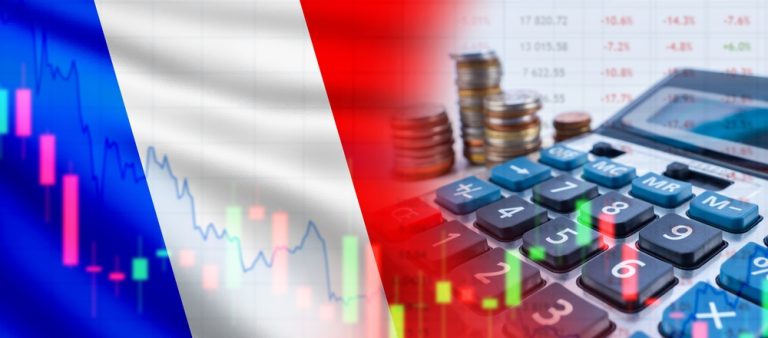The latest business climate data for France highlights mounting economic concerns, with the indicator dropping to 96 in November, below its long-term average. While some sectors showed signs of resilience, the overall outlook suggests sluggish growth and persistent economic headwinds in the months ahead.
Mixed Sentiment Across Sectors
Business sentiment in the industrial sector rebounded slightly in November, but the improvement fell short of recovering the significant losses recorded in October. Confidence remains fragile, reflecting ongoing uncertainty in the broader economic environment.
In contrast, sentiment weakened in other key sectors:
- Services: The business climate index fell by two points due to worsening expectations for activity and demand.
- Retail and Wholesale Trade: Businesses reported declining order intentions and reduced staffing levels, indicating softer demand.
- Construction: Confidence dipped further as leaders revised their assessments of past activity downward, reflecting persistent challenges in the sector.
These trends underscore the widespread impact of economic difficulties across various industries in France.
Economic Growth Slows
The deteriorating business climate data points to weak GDP performance in the fourth quarter of 2024, with a projected contraction of 0.1%, following a 0.4% increase in the third quarter boosted by the Olympic Games. Analysts warn that the outlook for 2025 remains muted, with GDP growth expected to reach just 0.6%, down from the 1.1% forecast for 2024.
This slowdown reflects not only declining confidence but also significant structural challenges, including geopolitical uncertainties, constrained investment potential, and weakening domestic and external demand.
Key Factors Behind the Economic Slowdown
Weak Business Investment
Businesses are expected to reduce investment further in 2025 due to limited opportunities for long-term rate cuts, political and geopolitical instability, and persistently weak demand. This trend could hinder economic recovery, as investment is a critical driver of growth.
Household Consumption Concerns
While a recent decline in inflation supported household purchasing power, this trend is unlikely to continue. Analysts anticipate a slight rebound in inflation in the coming months, combined with a softening labor market. Employment contraction in 2025 could further dampen consumption, as households prioritize saving over spending amid economic uncertainties.
Fiscal Restraints and External Pressures
France’s more restrictive fiscal policy, including public spending cuts and tax increases, is expected to weigh on domestic demand. Meanwhile, weaker economic momentum among key trading partners and potential increases in customs duties could further strain external demand.
Long-Term Outlook
The data paints a challenging picture for France’s economic trajectory, with very weak growth projected in the short term. Current expectations for a strong recovery in consumption and investment appear increasingly unlikely, given the persistent headwinds. France is expected to see GDP growth of just 0.6% in 2025, down significantly from the more optimistic forecasts made earlier this year.
France’s darkening business climate reflects deeper structural and economic challenges that could hinder recovery efforts. With sluggish growth, political uncertainties, and constrained fiscal flexibility, the outlook for the French economy remains clouded. Policymakers and businesses alike will need to navigate these obstacles carefully to lay the groundwork for long-term stability.


